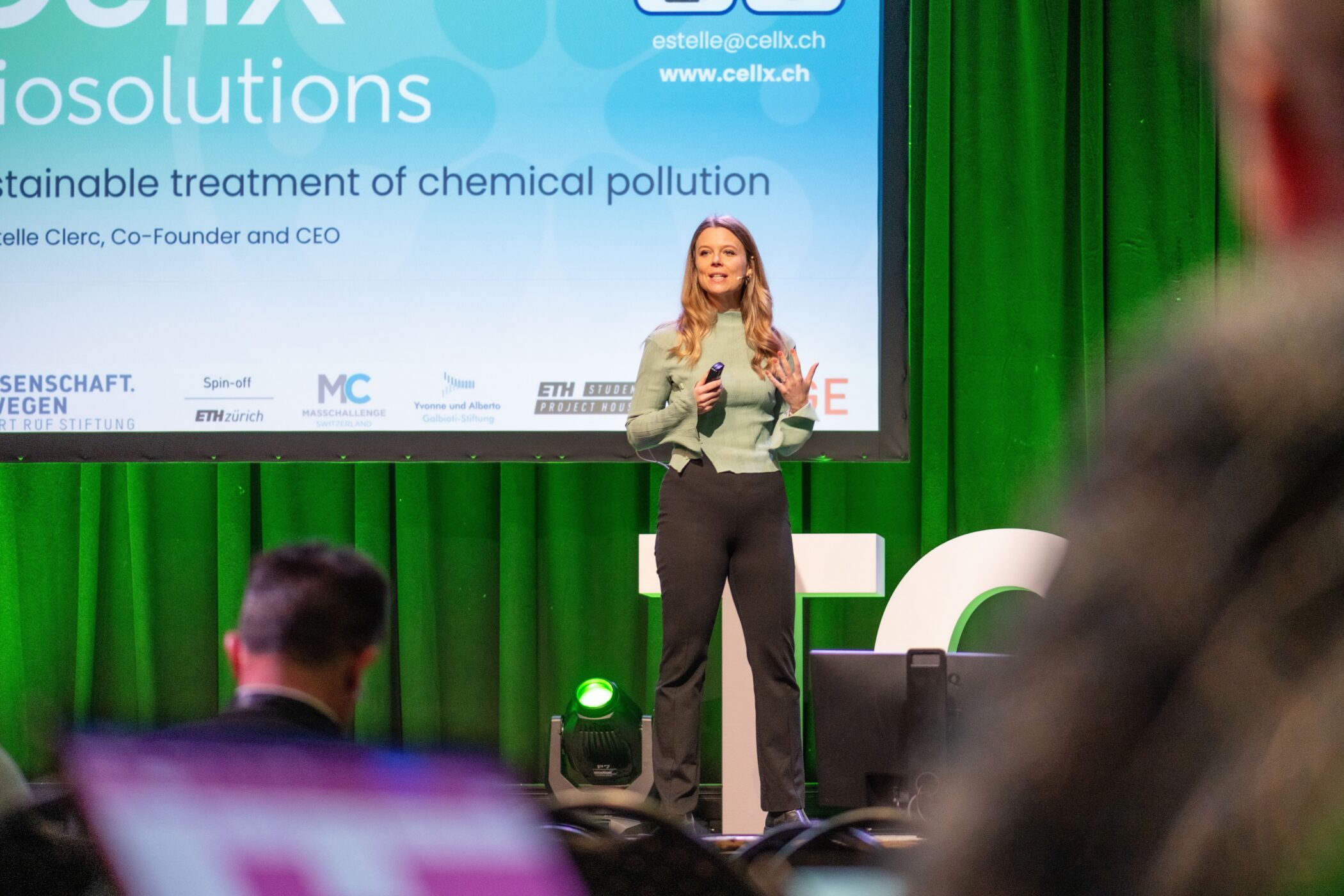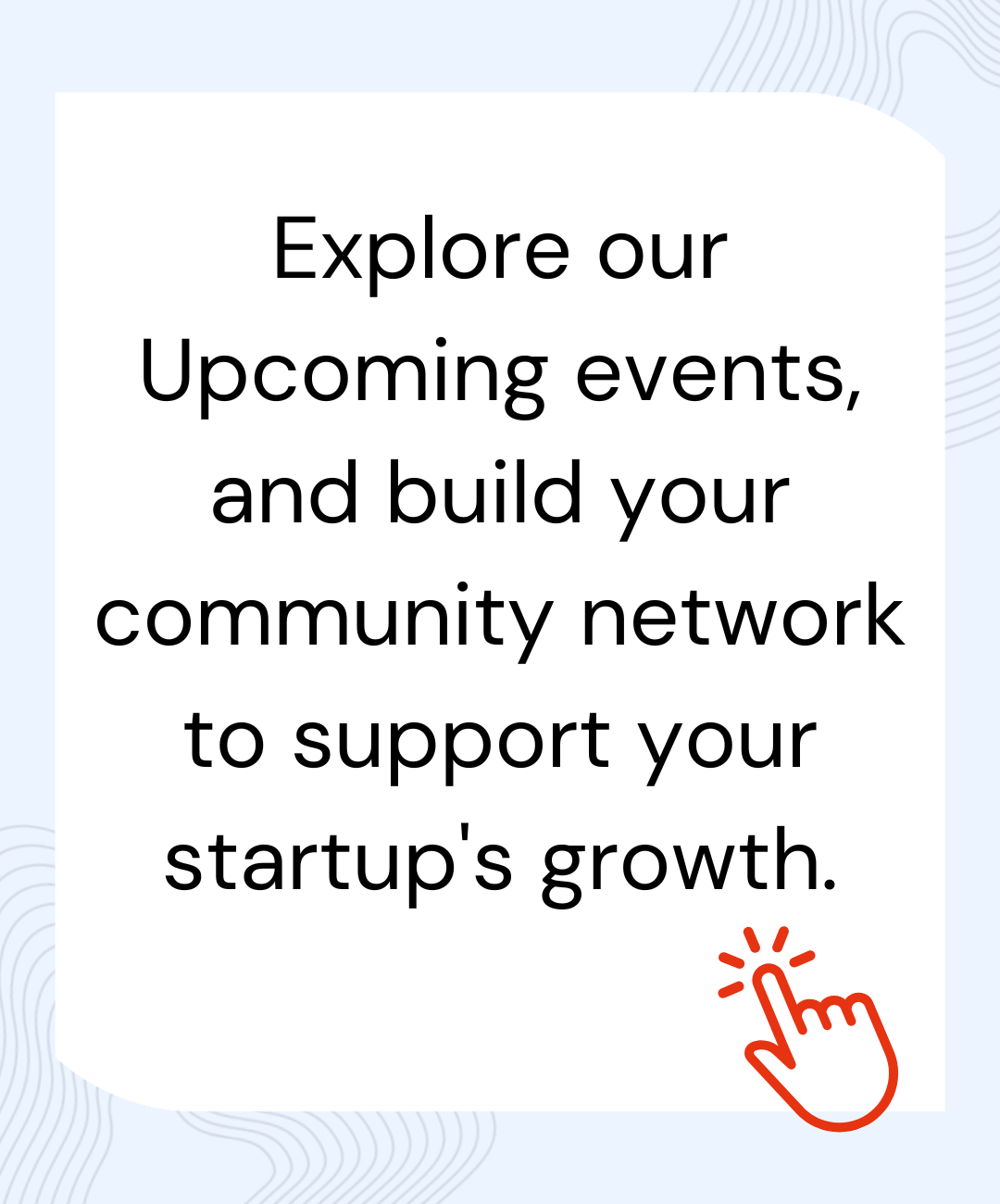
WA de Vigier Prices 2025 – 15 startups move a step closer to winning CHF 100,000
Solothurn, March 4, 2025 The competition for Switzerland’s most prestigious startup award is gaining momentum. Fifteen outstanding startups have reached the next round and are one step closer to one of up to five coveted prizes worth CHF 100,000 each.
Selected from a pool of 50 promising young companies, the 15 best startups impressed a live audience, online viewers and the foundation board with their groundbreaking ideas on Selection Day at the end of February. The rigorous selection process began with over 200 applications from eight industry clusters.
“The quality of the pitches was astonishing. These young CEOs mastered even the most difficult questions from our jury with ease. Their innovation, determination and business acumen are truly inspiring,” says Céline Bedu, COO of the WA de Vigier Foundation.
The top 15 will now go through another round of evaluation, based on expert reports and extensive interviews with the foundation board. The next milestone is the selection of the top 10 over two presentation days in early May – the last step before the big awards ceremony on
June 18, 2025, where Switzerland’s most promising startups will be on stage.
These are the top 15 CEOs and their startups (in alphabetical order)
Emmanuel Akpakwu / Axmed AG
Access to medicines for all
Axmed is a B2B pharmaceutical marketplace that improves access to healthcare in underserved regions around the world. By bundling demand from the public, private and third sectors, the platform enables bulk purchases, reduces costs and optimizes the supply chain. It connects approved manufacturers with buyers, ensuring a reliable supply of high-quality medicines at competitive prices. Through strategic partnerships with governments, NGOs and logistics providers, Axmed simplifies procurement and distribution – for more efficient and equitable healthcare.
José Luis Bala / Precise Health SA
Reducing antimicrobial resistance through bacteriophage therapy
Precise Health SA is making it easier for doctors to find life-saving bacteriophage treatments to fight dangerous infections. The startup’s platform connects doctors to global phage biobanks with a single click, eliminating long search times. It uses AI and genomics to quickly identify the right phages without the need for weeks of lab testing. If there are no suitable phages, the platform can digitally design new ones, offering new hope in the fight against drug-resistant infections.
Julie Böhning / PAVE Space SA
Improving space mobility and logistics
This startup is addressing the growing challenge of sustainable space operations with innovative logistics solutions for orbit. In the face of aging satellites and increasing space debris, PAVE’s Satellite Life Extension (LEX) service offers a solution: Through refueling, repositioning and maintenance, PAVE extends the lifespan of satellites, reduces waste and lowers the cost of replacement missions. To perfect this service, the startup is planning an in-orbit demonstration for 2027 and is expanding in parallel into the area of Space Situational Awareness (SSA) to precisely monitor satellites and debris.
Estelle Clerc / CellX Biosolutions
Bacteria – Nature’s Recycling Professionals
Chemical waste is usually disposed of by burning or filtering – an expensive, inefficient process that releases harmful CO₂. This startup offers an environmentally friendly alternative: the targeted use of special bacteria that efficiently break down toxic chemicals such as PFAS, pesticides and pharmaceuticals. The technology developed at ETH Zurich identifies and optimizes the most efficient microorganisms for this task and transforms them into sustainable solutions for the safe removal of pollutants. From 2025, the company will start the first pilot projects together with industrial partners to make chemical waste treatment cheaper and more environmentally friendly.
Bilal Fares | Azure Cell Therapies
Regeneration of Neurons to Combat Parkinson’s Disease
Every nine minutes, someone is diagnosed with Parkinson’s disease – an incurable disease that destroys brain cells. Current therapies only alleviate symptoms and become less effective over time. Azure Cell Therapies is taking a completely new approach: The company is developing a groundbreaking regenerative treatment in which laboratory-grown nerve cells are safely transplanted into the brain. The technology offers scalability, minimizes the risk of tumors and ensures the long-term survival of the new neurons. With 18 years of research, $8 million in funding and 5 patents, Azure is setting new standards for the future of Parkinson’s therapy.
Simona Fehlmann | sallea AG
Revolutionizing Cultured Meat and Fish
Until now, most cultivated meat could only be produced in the form of burgers, sausages or nuggets because the cells grow in flat layers. sallea has changed this: With the help of edible scaffolds – a special support structure that mimics natural cell growth – the startup succeeds in growing real, structured steaks and fillets. Founded by an all-female team from ETH Zurich, sallea produces high-quality, sustainable meat and fish – without any animal suffering and with minimal environmental impact.
Moritz Geilinger| Flink Robotics
robots for material handling
Industries from e-commerce to pharmaceuticals are struggling with labor shortages, rising costs and pressure for faster deliveries. But traditional warehouse processes are often slow and difficult to scale because they rely heavily on manual work. Flink develops intelligent, adaptive robot systems that perform tasks such as sorting, picking and loading fully automatically. Unlike rigid industrial robots, Flink’s AI-controlled cobots adapt in real time and can be seamlessly integrated into existing workflows. The result: greater efficiency, lower costs and faster, more reliable deliveries.
Edwige Guinet | Visienco AG
AI-supported handling of Organoids
Conventional drug testing is slow, expensive and unreliable – 90% of drugs tested on animals do not work in humans. Organoids, miniature versions of human organs grown in the laboratory, offer a promising alternative. But their use is limited by manual and inconsistent processes. Visienco solves this problem with Orgadroid, an AI-driven device that automates the sorting of organoids in a precise and scalable manner. Developed at CSEM, this technology ensures consistently high quality of organoids and accelerates drug discovery, diagnostics and personalized medicine – while reducing the need for animal testing.
Freddy Hunziker | New Roots
Vegan dairy products from Switzerland
Milk production has a significant impact on the environment. New Roots replaces cow’s milk with lupins, which are protein-rich legumes that add nitrogen to the soil and grow efficiently. Natural biotechnology is used to produce lupin milk that can be processed in existing cheese factories without additional investment. The cheese is fermented and matured in the traditional way, but with 80% less CO₂ and 6000x less water consumption. This creates an ethical, healthy and environmentally friendly alternative for cheese production.
Christian Jünger | YQuantum GmbH
Making quantum computers scalable
Quantum computers could revolutionize industries like medicine, finance, and logistics, but today’s systems are too small to realize their full potential. YQuantum is solving this problem by developing scalable hardware that will allow quantum computers to grow from 100 to 100,000 qubits – a 1,000-fold improvement. By miniaturizing and integrating cryogenic components, YQuantum is paving the way for practical quantum computing at scale. This breakthrough could lead to faster drug discovery, optimized supply chains, and advanced AI, changing the tech world as we know it.
Matthew Lapinski | Clee Medical SA
More precision and efficiency in neurosurgical instruments
Clee Medical is revolutionizing brain surgery with a groundbreaking platform that combines real-time ultra-high-resolution imaging, AI-based navigation and machine learning. This technology enables surgeons to operate with absolute precision, minimize risks and dramatically improve patient outcomes. By improving the visualization of complex brain structures, it enables safer and more effective treatments for neurological diseases. The system also reduces healthcare costs, accelerates recovery and expands access to life-saving therapies.
Hugo Meley | Inteeth SA
Invisible aligners behind the teeth
Braces and aligners help straighten teeth, but they have their pitfalls: metal braces are visible, lingual braces are costly and uncomfortable, and clear aligners must be constantly removed. InTeeth solves these problems with the InLiner™, a completely invisible aligner behind the teeth that offers comfort, precision, and faster treatment. It reduces treatment time by 50% and makes invisible orthodontics more accessible and affordable. With its patented design and proven results, InTeeth will change orthodontic care.
Ulrike Pfreundt | rrreefs AG
reconstruction and regeneration of coral reefs
rrreefs restores dying coral reefs with an innovative, modular 3D-printed system that allows the biodiversity of marine life to thrive. The reef restoration packages offer companies a straightforward way to invest in ocean health, achieve sustainability goals and comply with regulatory requirements. By combining marine science, technology and entrepreneurial commitment, rrreefs optimizes coastal ecosystems in the long term. Fully scaled, rrreef’s system could protect 700 km of coastline within a decade.
Donato Rubinetti | lonic Wind
Silent, energy-efficient device cooling
This startup is changing the way electronic devices are cooled by replacing traditional fans with a quiet, energy-efficient technology called Ionic Wind. Instead of using rotor blades, it uses an electric field to move air, reducing noise, energy consumption, and wear and tear on devices. This means laptops and other compact electronics stay cooler, run longer on battery, and last longer overall. With 48% more airflow and lower power consumption, this innovation makes modern technology quieter, more efficient, and more sustainable.
Michael Schacher | Alligator AG
Efficient loading of tractor units while driving
The startup enables tractor units to be charged while driving by moving batteries onto the trailer. These can be loaded with energy and cargo independently of the towing vehicle. A specially developed planar feedthrough replaces conventional cable connections and ensures safe, reliable power transmission. This allows solar power to be used more efficiently, extends the range of electric trucks and protects the batteries. The solution contributes to a more sustainable and economical future in heavy-duty transport.
____________________________________________________________________________________________________________________________________________
About the WA de Vigier Award
The WA de Vigier Promotional Prize is the oldest award for young entrepreneurs in Switzerland and is one of the most highly endowed sponsorship prizes in Switzerland, with prize money of up to CHF 500,000 per year (five times CHF 100,000). In its 36-year existence, the foundation has distributed a total of almost CHF 15 million in start-up capital. To date, this has resulted in over 150 successful startups, several IPOs, profitable company sales and, above all, numerous new jobs.
The following factors are taken into account when assessing a project: the personality of the entrepreneur, the innovative nature, the relevance to society as a whole, the technical and financial feasibility as well as market opportunities and the potential for new jobs.
Contact for inquiries
WA de Vigier Foundation
Untere Steingrubenstrasse 25 | 4500 Solothurn
www.devigier.ch




